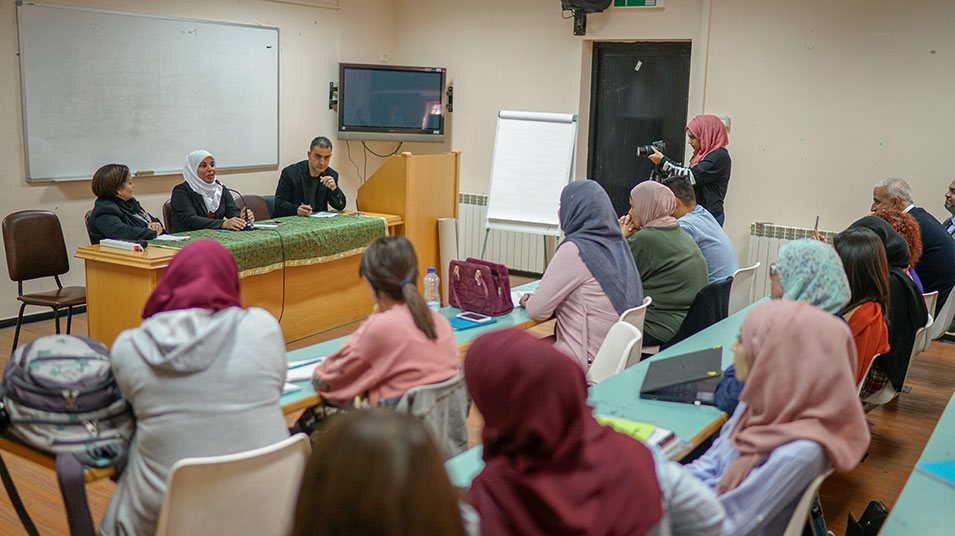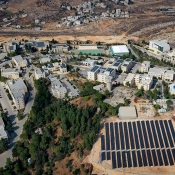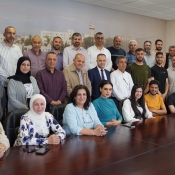Female Palestinian prisoners share experiences inside and outside Israeli prisons
On November 8, 2018, the Institute of Women’s Studies, the Union of Teachers and Employees of Birzeit University, and Samidoun: the Palestinian Prisoner Solidarity Network held a symposium entitled “Marginalized Cases: the Struggle of Palestinian Female Prisoners in Israeli Prisons,” featuring the freed prisoners Rula Abu Duhou, a lecturer the Women’s Studies Program, and Iman Nafe’, the wife of Nael Barghouthi, the longest-held Palestinian political prisoner. The symposium was followed by a sit-in in solidarity with the current female Palestinian prisoners who are on strike.
Abu Duhou and Nafee’ talked about their experiences during their imprisonment inside Israeli Occupation prisons, tackling the outrageous and violent practices imposed by Israel against them.
Director of the Institute of Women’s Studies Lena Meari reaffirmed the importance of highlighting the issue of female Palestinian prisoners to show support and solidarity. The secretary of the union, Sameh Abu Awad, said that the least thing Palestinians can do for prisoners is hold these kinds of talks and symposiums, especially amid the lack of public and official movement to stop their suffering inside prisons.
Abu Duhou talked about the current female prisoner strike in Israeli prisons. For 61 days the prisoners have been boycotting the fawra period, which is the time spent by the prisoners in the prison yard outside their rooms, despite all the negative consequences on their health. This refusal comes after the Israeli Occupation installed cameras in the prison yard. “This is a direct violation of the prisoners’ privacy, and aims to control and suppress their movement,” commented Abu Duhou.
“Going to the fawra is the only possible chance for prisoners to see some sunlight,” Abu Duhou continued. “It is important for their physical and mental health. The prisoners are afraid of getting sick because of not being able to get any treatment. Moreover, most female prisoners wear hijab, so going out to the fawra is the only opportunity for them to expose their hair to the sun and work out.”
The freed prisoner Abu Duhou talked about her own experience inside an Israeli Occupation’s prison and how she and other freed prisoners lived after getting out of prison. All female prisoners, according to Abu Duhou, refused to deal with their release as an individual issue, but as a collective one. “This is the only case in the world where all political prisoners are tied together to attain freedom despite their bad conditions.”
Former prisoner Nafe’ told the students that it is important to continuously highlight in their personal and academic life the prisoners cause, especially the experiences of female prisoners. Nafe’ herself was imprisoned for around 15 years, because she was accused of attempting to beat a female solider and choking another one.
Nafe’ continued Abu Duhou’s talk about the experience of female prisoners inside and outside prison and how they are united together in fighting for their cause and rights. This unity enabled them to force the so-called “Israeli Supreme Court” to release all Palestinian female prisoners. She concluded by assuring the prisoners ongoing struggle even after going out of prison until Palestine is liberated and free.
Nafe’ called upon all human rights advocates and experts in the English language to work together to highlight and spread this cause to the international community.
A Q and A session followed the symposium.








